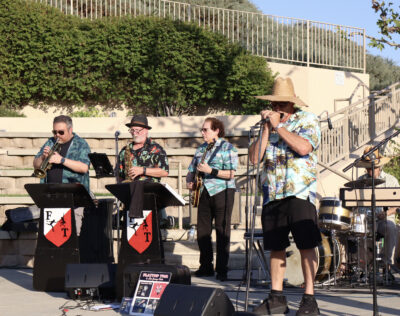By Naveen Athrappully
Contributing Writer
U.S. Health Secretary Robert F. Kennedy Jr. called on every state governor to exclude sugary drinks from the Supplemental Nutrition Assistance Program initiative, according to a statement earlier this month from the Department of Agriculture.
SNAP food stamp beneficiaries get a card similar to a debit card, into which benefits are automatically transferred every month. The card is used to buy groceries at authorized outlets.
RFK Jr.’s statement came at an event where Secretary of Agriculture Brooke L. Rollins signed three waivers restricting the purchase of sugary items under the SNAP program in Arkansas, Idaho and Utah. Rollins previously had signed waivers for Indiana, Iowa and Nebraska.
“Taxpayer dollars should never bankroll products that fuel the chronic disease epidemic,” Kennedy said, commending the governors for their “unwavering commitment to Make America Healthy Again.”
Previously, SNAP beneficiaries in Arkansas, Idaho and Utah could use the benefits to buy any grocery item except hot and prepared foods, alcohol, tobacco and personal care products.
With the waiver, recipients in Arkansas cannot use SNAP to buy fruit and vegetable drinks with less than 50% natural juice; soda; low and no-calorie soda; other unhealthy drinks; and candy. In Idaho, the SNAP waiver excludes soda and candy. In Utah, soft drinks are excluded.
The American Beverage Association has sharply criticized the move against sugary drinks.
In an April 15 statement, the ABA accused Arkansas Gov. Sarah Huckabee Sanders and Secretary Rollins of acting as “food police” after the state submitted its SNAP waiver request to the USDA.
“If the governor is sincere about what taxpayers can buy with SNAP dollars, this sends a ridiculously conflicted message: It’s OK to buy a wide array of desserts, snack cakes, and treats, just not soda and candy. How does that make sense?” the association said.
“Make no mistake, this waiver won’t make an ounce of difference on health. Obesity has skyrocketed in the last two decades while beverage calories per serving have dropped by 42% — thanks to our industry’s efforts to empower Americans with more choice and information. In fact, 60% of beverages Americans buy today have zero sugar due to our innovation.”
The waiver for Arkansas takes effect on July 1, 2026, and on Jan. 1, 2026, in Idaho and Utah.
Sanders said the waiver approval “sends a clear message: President Trump and his administration are tackling America’s chronic disease epidemic and Arkansas stands with him in that fight.”
Sugary Drinks and Health
On May 19, when the first state SNAP waiver was issued to Nebraska, the USDA cited “alarming disease trends across the country,” highlighting that one in three children between the ages of 12 and 19 were affected by prediabetes.
Moreover, 40% of school-aged children and adolescents suffer from at least one chronic condition, the agency said, adding that 15% of high school students drink one soda per day at a minimum.
Research has shown negative health consequences of regularly consuming sugary drinks.
A study published on Dec. 8 in the Frontiers in Public Health journal found that consuming more sugary drinks was linked to a higher risk of developing cardiovascular diseases than eating sweet food items such as pastries.
“Liquid sugars, found in sweetened beverages, typically provide less satiety than solid forms — they make you feel less full — potentially leading to overconsumption,” Suzanne Janzi, the study’s co-author, said in a statement.
“Context also matters — treats are often enjoyed in social settings or special occasions, while sweetened beverages might be consumed more regularly.”
The state SNAP waivers are part of the Trump administration’s Make America Healthy Again initiative. In February, President Donald Trump signed an order establishing the President’s Commission to Make America Healthy Again.
The commission, chaired by Kennedy, is tasked with investigating the “root causes of America’s escalating health crisis.”









